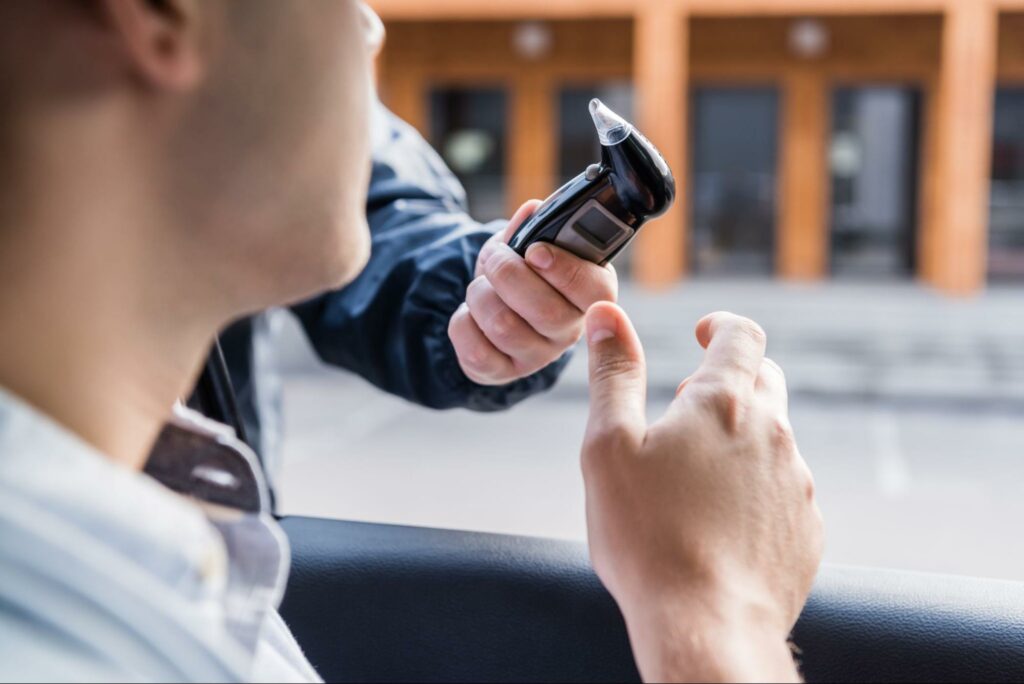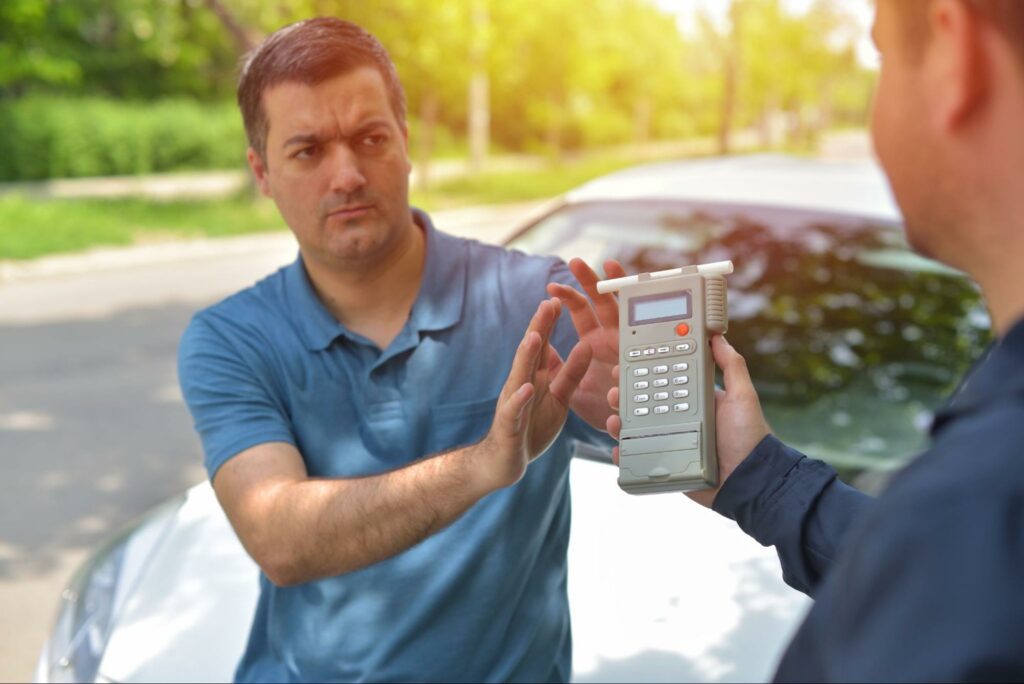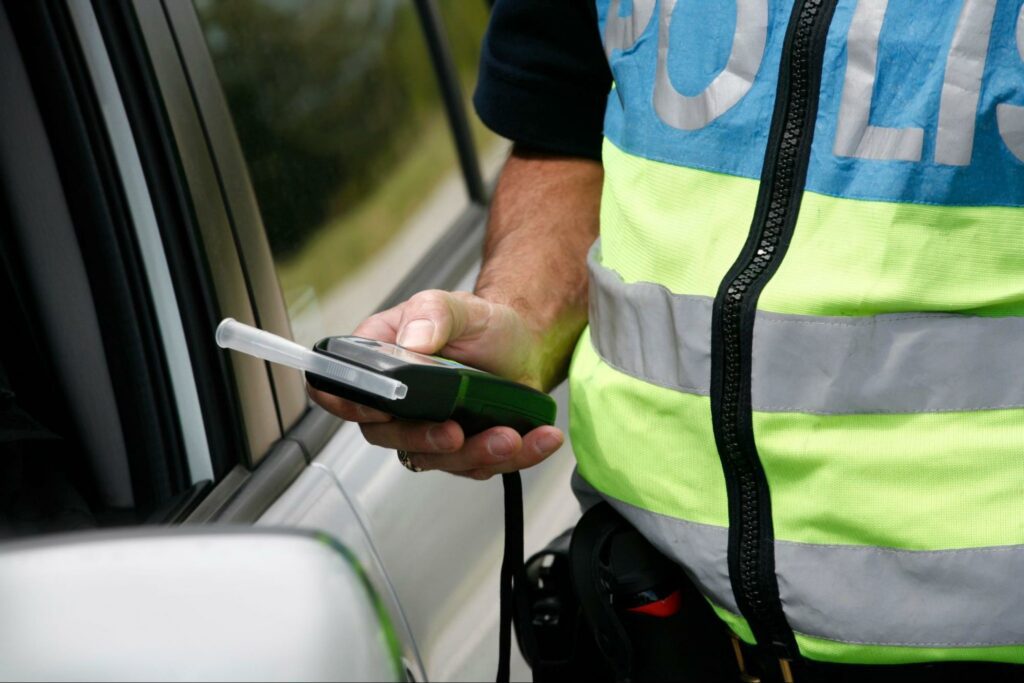Legally, you can refuse a breathalyzer in Michigan. However, doing so will affect you, your driving record and your chances for license restoration in numerous ways.

Refusing a breathalyzer isn’t a free pass. You can be required to submit to a test anyway, which, if not through the breathalyzer, can come in the form of a urine test or a blood test.
At this point, you may be asking yourself: “How could you be allowed to refuse the test but then be forced to take one?”
There’s a little more to it than that. Let me explain.
The Pros and Cons of Refusing a Breathalyzer Test: Should You Agree to Take the Test?
When you get a driver’s license, you agree to something known as “implied consent.” It means officers can administer a chemical test after arresting you. And there’s the detail that makes the difference and clears this all up: after arresting you.
So, if you’ve been stopped for suspected drunken driving but not officially arrested, you can refuse to take the breath test. When you do, it’s considered a civil infraction, and you will receive a $150 ticket. Other than being ticketed, the DUI process will be the same.
Additionally, this initial breath test is usually not used against you in court, especially because these tests are often unreliable. However, the results of the test can serve as support for your arrest.

At this point, you may be thinking, “Ah, so it’s wise to refuse a breathalyzer test, after all.”
Not so fast.
Just because the officer didn’t get your test, he or she can still arrest you for suspicion of drunken driving – and then at some point soon afterward, you would have to submit to the test in one way, shape, or form. You also may be given a second test, known as a DataMaster test, at the police station. Your blood-alcohol level decreases by about .015 every hour, so this may be reflected in the documentation.
If necessary, the arresting officers can even obtain a warrant and have you sent to a local medical center to have your blood drawn.
So, when all is said and done, refusing a breathalyzer just delays the inevitable, and that’s why it generally isn’t a good idea to refuse it.
If you refuse the test, the officer would have to report that to the Michigan Secretary of State. If you don’t contest this within 14 days, six points would be added to your license.
Additionally, your license would be suspended for one year, even after a first DUI. And that’s another significant difference between submitting to a breathalyzer vs. refusing it. Typically, after a first DUI with a blood alcohol level lower than 0.17, your license would be suspended for a minimum of six months; if you refuse the test, it would be suspended for a minimum of one year.
The main benefit of refusing a breathalyzer is that you won’t be helping to build a case against yourself.
How to Get Your License Back after Refusing a Breath Test

If you have already refused a breathalyzer test and have already had your license suspended or revoked, don’t lose hope. You do have options.
If your license has been suspended, you can apply for a restricted license 30 days later. Once your suspension period is over, you can apply to get your license back by paying a fee to the Michigan SOS.
If your license has been revoked, you will have to go through several steps to get your license back. These steps include applying for a hearing before the Michigan state board, attending substance abuse counseling, and submitting letters of recommendation. At this point, whether you refused or submitted to the breath test when you were originally stopped is rather irrelevant. However, the board may ask you about it during your license reinstatement hearing, so be prepared to give a reasonable answer. (See our past blogs for more details about how to get a revoked license reinstated.)
For more information about the consequences of refusing a breathalyzer test in Michigan, contact me for a free consultation.

